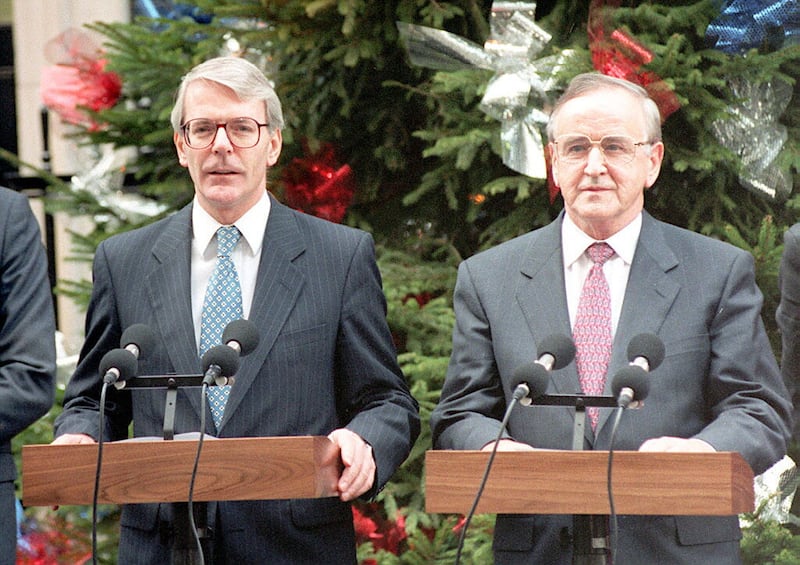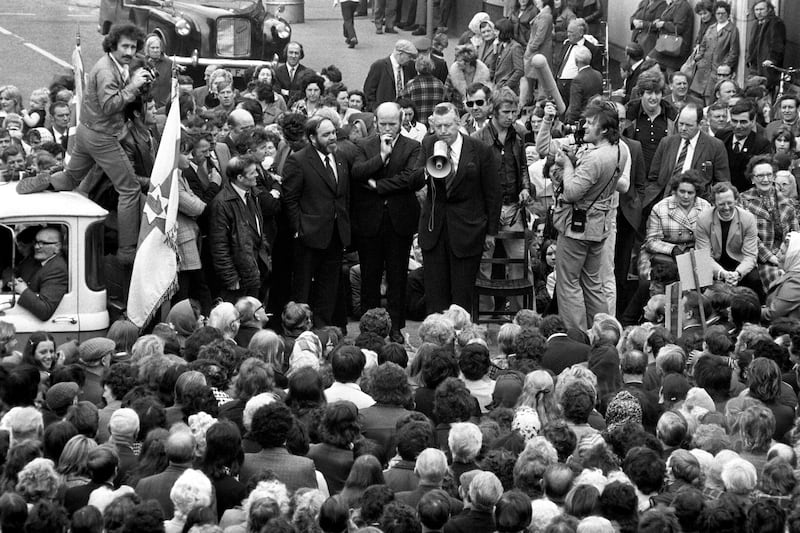FIFTY years ago – almost to the day – the Sunningdale Agreement was published. It came after three days of negotiations between the UUP, SDLP, Alliance and the British and Irish governments and focussed mostly on establishing the ‘Irish dimension’ of the new power-sharing assembly (elected in June 1973) and the executive coalition agreed on November 21.
The most contentious part of the agreement was the Council of Ireland, which gave the Irish government considerable input into the governance of Northern Ireland, albeit with what were described as ‘appropriate safeguards’ for the British government’s financial and other interests.
Too far for unionism
It was, as expected, a step too far for unionism (which still hadn’t acclimatised to the proroguing of the NI Parliament in March 1972), and Brian Faulkner was ousted as UUP leader on January 4. By the end of May, the entire assembly and political process had collapsed.
Has much changed since then? The latest assembly remains mothballed; there are complaints about proposed Irish ‘interference’ in the process to elect members of the executive; both the SDLP and UUP are struggling to reach 10% support levels; Alliance has returned to its position as potential kingmaker; and in December 1993 the British government abandoned the ‘appropriate safeguards’ language of 1973 in favour of declaring itself to have ‘no selfish strategic or economic interest in Northern Ireland’.

One other thing has changed, of course. In December 1973 the unionist vote stood at 62% and the overall pro-union vote (adding on Alliance and the NI Labour Party) brought the tally to just under 74%.
It was that level of support in favour of the UK which ensured the Council of Ireland was going to bite the dust: and that sort of level which also ensured that the pro-union middle classes were content to turn a mostly blind eye to the UWC strike in May 1974.
Massive drop in unionist vote
At the last Assembly election, May 2022, the unionist/unambiguously pro-union vote was down to around 43%. That, by any measure, is a massive drop. It doesn’t mean that a united Ireland is guaranteed (recent polling in The Irish Times suggests the pro-union lobby retains an important advantage on some of the key deciding issues), but it does mean that political/electoral unionism has lost the clout and authority it once had.
Read more:
- Direct rule would be calamitous for unionism and Northern Ireland - Alex Kane
- Alex Kane: A united Ireland is not the answer
- Brian Feeney: United Ireland needed to end north's permanent state of crisis
And when you lose that authority you soon discover that the UK Government is not as willing to listen. Indeed, most of the evidence suggests it is more than prepared to ignore unionism altogether.
The political/electoral battlefield has changed since 1973. It was, I think, Napoleon who noted that ‘the battlefield shapes politics'. He was right. When you’re not winning or not punching your perceived weight on that battlefield then you are not going to be in the position to dictate terms, let alone enforce your will on others.
Unionism and loyalism had the numbers in 1973/74 and dominated the battlefield. Yet even with that advantage they have not been able to impose their will and terms on any British government since Sunningdale collapsed on May 28 1974.

Mandatory coalition essential for unionism
One advantage – although I’m not persuaded that is actually the correct word to use – unionism does have is mandatory coalition (I bet you in 1973 that not a single unionist believed the day would arrive when mandatory coalition would be an essential tool in its defences). I’m not even sure it thought that the ‘consent principle’ would ever be required as part of its armoury, either. If we now had voluntary coalition, there’s a fair chance we would have an executive without a single unionist or pro-union minister.
Anyway, what do you do when you no longer dominate either the political or electoral battlefield? You sure as hell don’t set out demands which will not be conceded. You look at the layout of the battlefield and marshal your strengths accordingly.
Most important, though, you don’t pick a fight you have no chance of winning.








